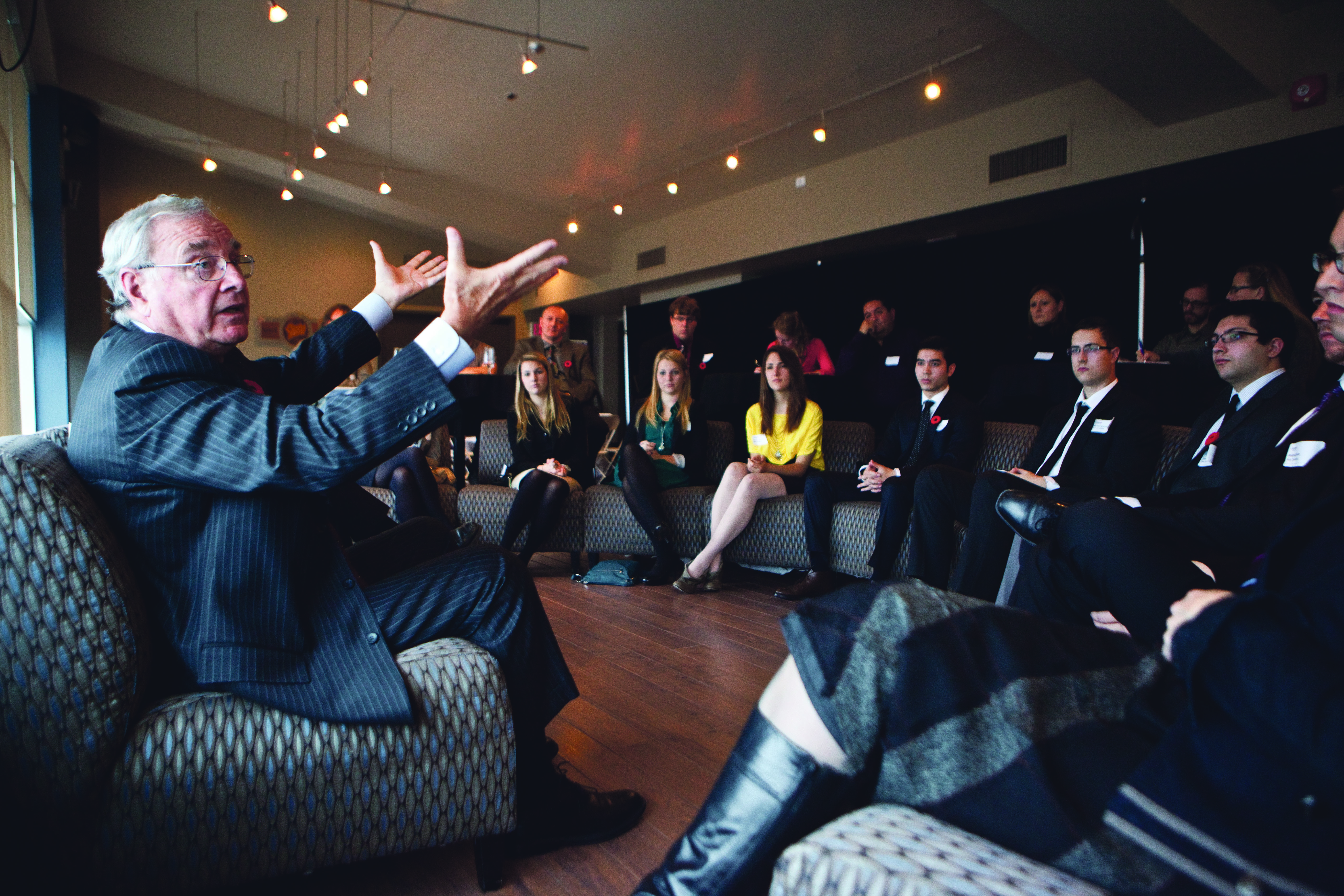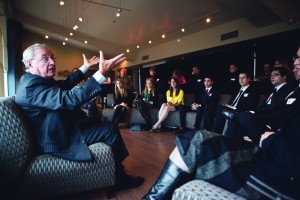Former PM engages students


Former Canadian Prime Minister Paul Martin stopped by the Hawk’s Nest at Wilfrid Laurier University this past Friday to engage in discussion with political science faculty and students.
The event included a lunch and “fireside chat,” a format which had been found to be successful in past years.
While the majority of questions focused on Martin’s opinions and approaches regarding Canada’s Aboriginal population and the government’s current and former policies addressing Aboriginal issues, questions were also posed about foreign policy and climate change. One particular issue which appeared to resonate strongly with Martin was education.
“Most of us agree it’s a moral issue; it’s an overwhelming economic issue,” argued Martin on the importance of ensuring equal education opportunities for Aboriginal and non-Aboriginal students.
When asked about the economic argument for supporting costly infrastructure development, he cited the fact that Aboriginal populations are the fastest growing in Canada. Aboriginal students receive less funding and often struggle to gain access to quality education on reserves or in remote communities.
“We can’t afford to lose this talent,” he continued.
However, according to Martin, questions of success in education, health care, native-status issues and other concerns come back to the need for self-governance. While our own governance has evolved, he made the point that Aboriginal governance systems have been prevented from doing the same.
“What we’ve got to do is give their governance back,” stressed Martin, responding to an audience member who questioned how to bring out the indigenous perspective in Canadian politics. Before their abilities were impeded by overarching structures, he acknowledged, “The fact is that they were well governed.”
While many initiatives have been put in place and discussed in order to diminish gaps between Aboriginal and non-Aboriginal Canadian populations, chronic underfunding has undermined much potential success. Under the Martin government, the Kelowna Accord aimed to unite varying levels and types of government across Canada to address disparities in areas such as health and education.
“There are certain areas in which you absolutely have to be spending money,” Martin explained. While some believe that the free market will equalize societies, he countered, “I don’t believe the free-market system can survive without upward mobility.”
Martin also acknowledged the importance of engaging with students, remarking that he was impressed with the quality of the discussion produced by those in attendance. “These are tomorrow’s leaders.
They’ll be making the decisions that are really going to count,” Martin told The Cord.
Leila Bautista, a fourth-year political science student, was one of the few undergraduate students in attendance.
“I feel really fortunate as an undergraduate to have this opportunity,” she acknowledged. Bautista expressed that she was particularly pleased that Martin addressed questions of foreign policy, which pertain to her political interests.
Since his departure from political office, Martin has worked on international projects as well as Aboriginal issues through his non- for- profit organization The Martin Aboriginal Initiative, which focuses in part on the education of Aboriginal students as well as mentorship programs.

